‘Growing the future’: Working with Black farmers to advance equity
Read Time: 6 minutes
February 14, 2023
Updated: February 13, 2024
In one of John Lee’s oldest memories, he is sitting on his grandfather’s lap, driving their tractor through the family farm.
Years later, he would understand the significance of that moment.
“This farm has been in our family since my great grandfather was freed from slavery,” says John, who farms various crops, including cotton, in the U.S. state of Arkansas. “His name was Frank Edwards. He purchased this land to be passed on for generations to come. We’ve been in production for well over 100 years.”
Few Black Americans had the opportunity to buy land during the 19th century. On top of that, Black farmers who owned land also lost millions of acres of U.S. farmland due to systemic injustice. This has resulted in significant losses in productivity and economic opportunities.
Black farmers make up less than 2% of the 3.4 million farmers in the U.S.
John’s farm is not only his family’s livelihood — it’s also a legacy he intends to preserve for future generations, he says. And he’s found a new partner to help him do that: Cargill.
“Cargill and other companies came to me and a number of other Black farmers to discuss opportunities to do business with us,” John explains. “But I have to give Cargill credit, they’ve been the tip of the spear, helping us connect with new potential buyers and develop our businesses.”
Through Cargill’s Black Farmer Equity Initiative, John has found new possibilities in agriculture. These include sustainably raising cotton, which has increased his farm’s profitability.
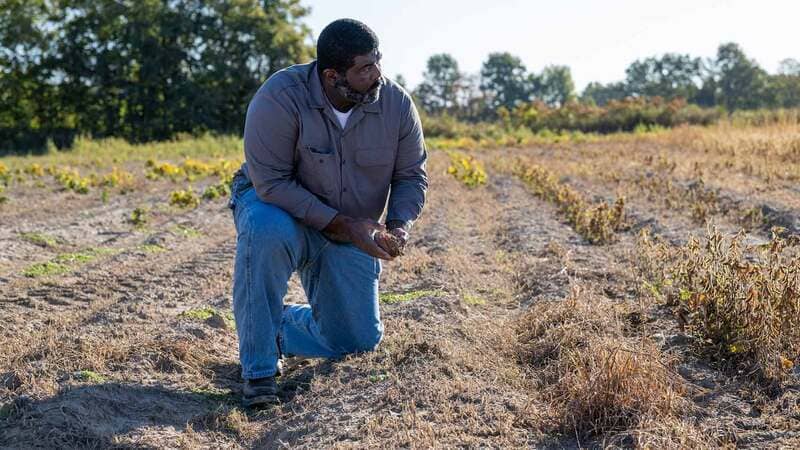 “We’re growing more than cotton here. We’re growing the future. What we do today will make life better for the generations to come.”
“We’re growing more than cotton here. We’re growing the future. What we do today will make life better for the generations to come.”
Making agriculture more equitable with Black farmers
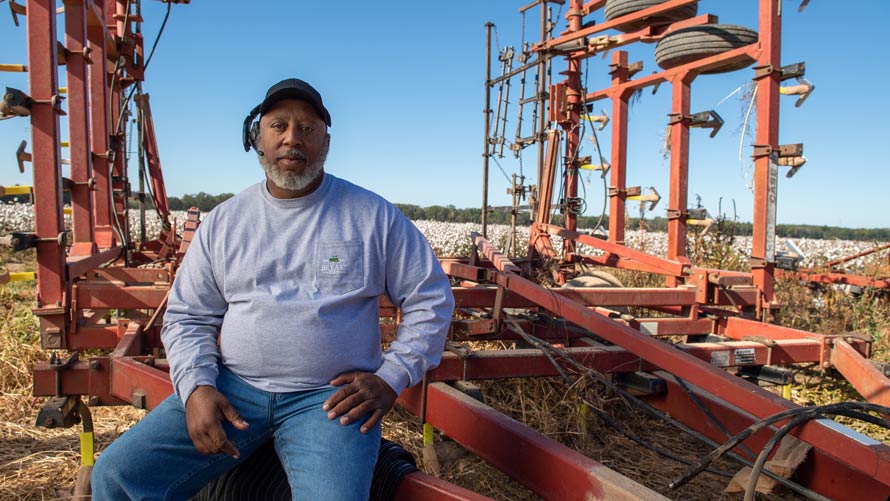 Cargill is using its role at the heart of the agriculture supply chain to provide Black farmers access to more market opportunities, capital and technology.
Cargill is using its role at the heart of the agriculture supply chain to provide Black farmers access to more market opportunities, capital and technology.
Cargill’s Black Farmer Equity Initiative, first introduced in 2021, helps address racial inequity in agriculture. Alongside our customers, we are working to increase the participation, profitability and productivity of Black farmers, ranchers and growers.
That includes connecting Black farmers to markets, capital, information and technology across a number of supply chains — from beef to soy, corn and cotton.
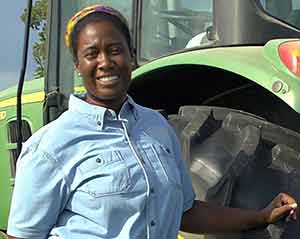 “Programs like Cargill's Black Farmer Equity Initiative provide new ways for Black producers to access markets and sell their livestock and crops. We’re looking for an open door where they have been closed in the past.”
“Programs like Cargill's Black Farmer Equity Initiative provide new ways for Black producers to access markets and sell their livestock and crops. We’re looking for an open door where they have been closed in the past.”
Connecting Black farmers to new supply chains
 Cargill is partnering with Seanicaa Edwards Herron (second from right) of the Freedmen Heirs Foundation to map supply chain opportunities with Black growers and look for new markets.
Cargill is partnering with Seanicaa Edwards Herron (second from right) of the Freedmen Heirs Foundation to map supply chain opportunities with Black growers and look for new markets.
For Seanicaa Edwards Herron, agriculture is a family affair.
“On my mom and my dad’s side of the family, farming was generational,” she says. “Agriculture was our way of life.”
Follow her paternal family tree and you’ll find generations of farmers, all the way up to Frank Edwards — a former slave and freedman in Virginia and Seanicaa’s great-great-grandfather.
“My father didn’t want me to go into agriculture,” Seanicaa says. “He wanted me to be an engineer. But I didn’t listen.”
Seanicaa spent 20 years as an agricultural economist across academia, the private sector and the United States Department of Agriculture (USDA). Then, in 2022, she took a leap of faith and resigned from the USDA to lead the Freedmen Heirs Foundation, which envisions a world where Black farmers are restored to a position of prominence because they are profitable.
Today, Freedmen Heirs is one of several organizations partnering with Cargill’s Black Farmer Equity Initiative to work with Black Farmers. Other key partners include:
“The history of Black farming in America is riddled with hardship and heartbreak. Yet, it’s impossible to talk about American agriculture without talking about Black farmers. Their story should be at the forefront.”
Freedmen Heirs provides Black farmers with technical insight on contract management, risk management and business priorities, and helps make connections to market opportunities.
Through the Black Farmer Equity Initiative, Cargill is partnering with Seanicaa to map supply chain opportunities with Black growers and look for new markets.
“In every farmer we help, I can see my father and my grandfathers,” Seanicaa says. “To me, it’s an honor and a privilege.
“Black farmers get up every day, they plant and harvest every season, regardless of whether they’re discriminated against by systems, history or people. They do their work. That is resilience. I’m proud to do my part to help them. The Black Farmer Equity Initiative is an opportunity to open doors that have remained historically closed.”
From the cotton farm to a retail store
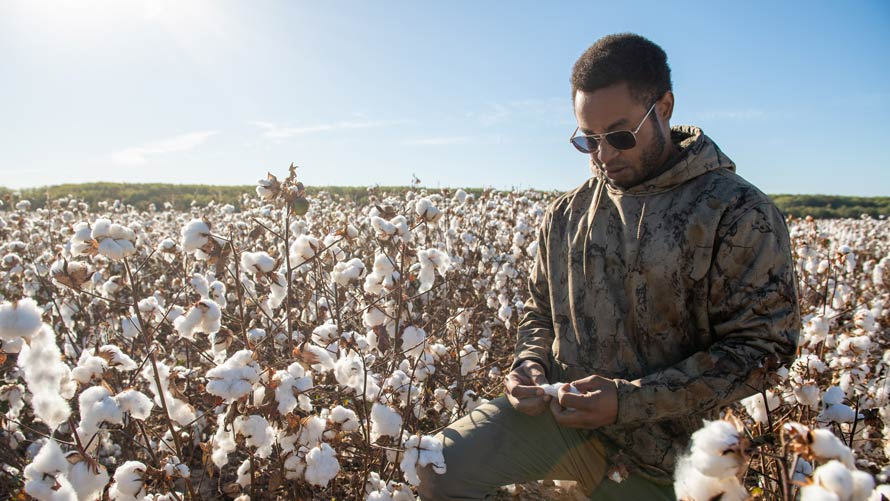 Cargill is using its role at the heart of the agriculture supply chain to connect Black farmers with more market opportunities, as well as easier access to capital and technical advice.
Cargill is using its role at the heart of the agriculture supply chain to connect Black farmers with more market opportunities, as well as easier access to capital and technical advice.
In the U.S., retailer Target launched t-shirts sourced from cotton grown on Black-owned farms.
What you may not have seen was Cargill using its role at the heart of the supply chain to connect Black cotton growers to big retailers like Target.
Our cotton team learned both companies had similar goals to work with more Black farmers. Combining Cargill’s deep expertise in cotton and Target’s similarly deep expertise in consumer-branded products, the two companies developed a program that brings Black cotton farmers front and center.
The program began in 2022 and is already delivering on its mandate: to provide access to new markets and new commodities, involving new partners.
“Other Black farmers are getting excited to join the program, because they can walk into Target and see a section devoted to our work,” John says. “It gives them a sense of pride.”
Learn more about the Black Farmer Equity Initiative and Cargill’s commitment to diversity, equity and inclusion.
More stories
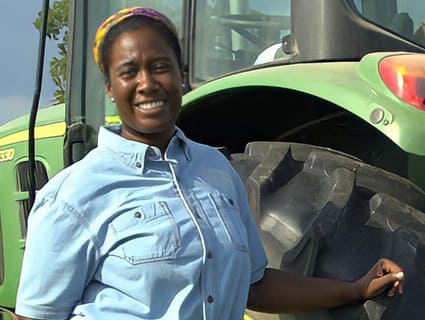
‘We’re looking for an open door where they have been closed in the past.’
Cargill partners with Black farmers to build a more equitable future in agriculture
‘This is how we eat’: An intern’s journey into food production
Two-time intern Darrin Adams shares his experience as an operations management intern at Cargill.

They told Ernest college wasn’t for him. He proved them wrong. Here’s how Cargill supported his journey.
Cargill’s University thrive program provides scholarships, development opportunities for underrepresented college students.

